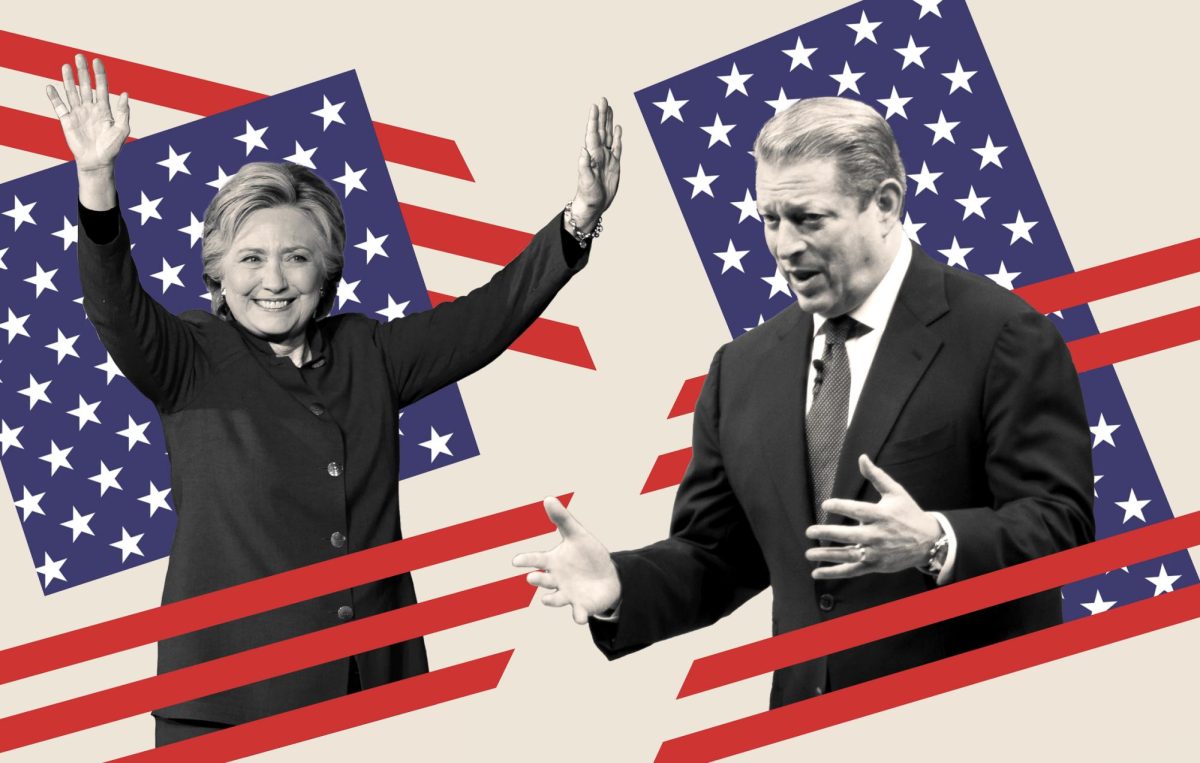With tensions growing in this year’s presidential election, former President Donald Trump has unleashed various personal attacks on his opposing candidate, Democratic nominee Vice President Kamala Harris. At a rally in Latrobe, Pennsylvania on Saturday, Oct. 19, Trump labeled Harris as a “s— vice president.” He went on to call her “slow” and said she had a “low IQ” on Tuesday, Oct. 21 at a campaign event in Miami. With no comment from the Harris campaign, this precedent for personal attacks between candidates has been developing over the last few elections, resulting in toxicity between the two parties.
The 2020 election consisted of much of the same vitriol, with clear hostility between candidates and contentious debates. Biden ultimately won the election — however, the events that followed on Jan. 6, 2021 where an armed and violent mob of Trump supporters stormed the capitol, leading government officials and lawmakers to take refuge, remains the biggest thorn in Trump’s 2024 campaign. History teacher Hilary Barron recalls her shock at people breaking into an esteemed government institution and Trump’s denial of the election results following the election.
“Trump’s continued claims of election fraud with no verifiable evidence are very concerning for the future of our democracy,” Barron said. “In the U.S., democracy was built on this idea of having a peaceful transfer of power. When you know that a sitting president is working against the democratically elected incoming president, it is very concerning.”
Engineering teacher Ted Shinta says the Jan. 6 events led him to feel more uncertain of the future, especially with the response from radical Trump supporters if Harris wins the current election. The Proud Boys, a far right movement supporting Trump that participated in the Jan. 6 insurrection, promise to emerge again following the November ballot.
“If Kamala Harris wins, there’s so many of these fanatics with guns, honestly, that you just don’t know what’s going to happen,” Shinta said. “Trump has fanatical loyalty and you hope that it doesn’t overthrow the government of the United States.”
Trump’s loyalty from his radical supporters began to grow in the election with former Secretary of State Hillary Clinton in 2016. Although Clinton won the popular vote, Trump won the electoral college and the presidency. The notorious emergence of Trump as a political figure beginning with his labeling of Mexicans as rapists to the controversial result brought into question the authenticity of the electoral college.
“The electoral college does not accurately reflect the population in an equitable way,” Barron said. “It makes it so that for some citizens in some states, their vote counts and has a bigger impact on the election than others. That’s why the candidates are spending so much time and money in these battleground states like Pennsylvania and North Carolina and those people are going to decide our election.”
Shinta believes that the conflict between Clinton and Trump was due to an increasingly widening divide between the two parties. For junior Maxim Gutnik, recent elections’ political climates have convinced him that each party views the other as an enemy, often bickering about what they disagree upon rather than focusing on other matters. Gutnik has seen the same divisions among voters.
“I’ve lost friends over my political beliefs, but I’ve also gained friends due to having different political beliefs,” Gutnik said. ”Anybody that might have a political opinion different from yours will be seen as an enemy due to the polarization. But we shouldn’t be looking at that. We should just be looking at what we can all agree on as a people.”
Unlike most elections, the result of the Presidential Election of 2000 was decided by the Supreme Court. The Democrat Al Gore, who was the incumbent Vice President, was running against George W. Bush, the eldest son of former president George H.W. Bush. With both candidates tied at 266 electoral votes, the attention turned to Florida, where, due to the small margin of votes, a recount was mandated. After a month, the U.S. Supreme Court voted five to four in favor of reversing the recount issued by the Florida Supreme Court, effectively handing Bush the victory. While Gore disagreed with the court’s decision, he conceded the election quickly citing “the unity and strength of our democracy,” a completely different route than what Trump chose where he continued to challenge the election.
“There was frustration from the Democrats but I think Al Gore conceded right away, and was trying to promote this idea of peaceful transfer of power,” Barron said. “Gore’s leadership drew people to accept the Bush presidency. I assume this is Trump’s last election, so it’ll be interesting to see whether candidates choose to follow his kind of style of rhetoric going forward or not.”
As the race towards election day comes to an end, Gutnik says it is imperative for the American people to understand that political violence will only cause further divisiveness. Shinta agrees with Gutnik and offers his own perspective.
“Nobody really has that kind of influence where they can have it their own way all the time,” Shinta said. “There’s always going to be dissent, and you have to bring some of those dissenters to your side. I look at politicians as they do good, they do bad. Our system isn’t perfect but it’s always built upon compromise.”












